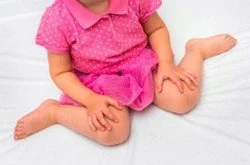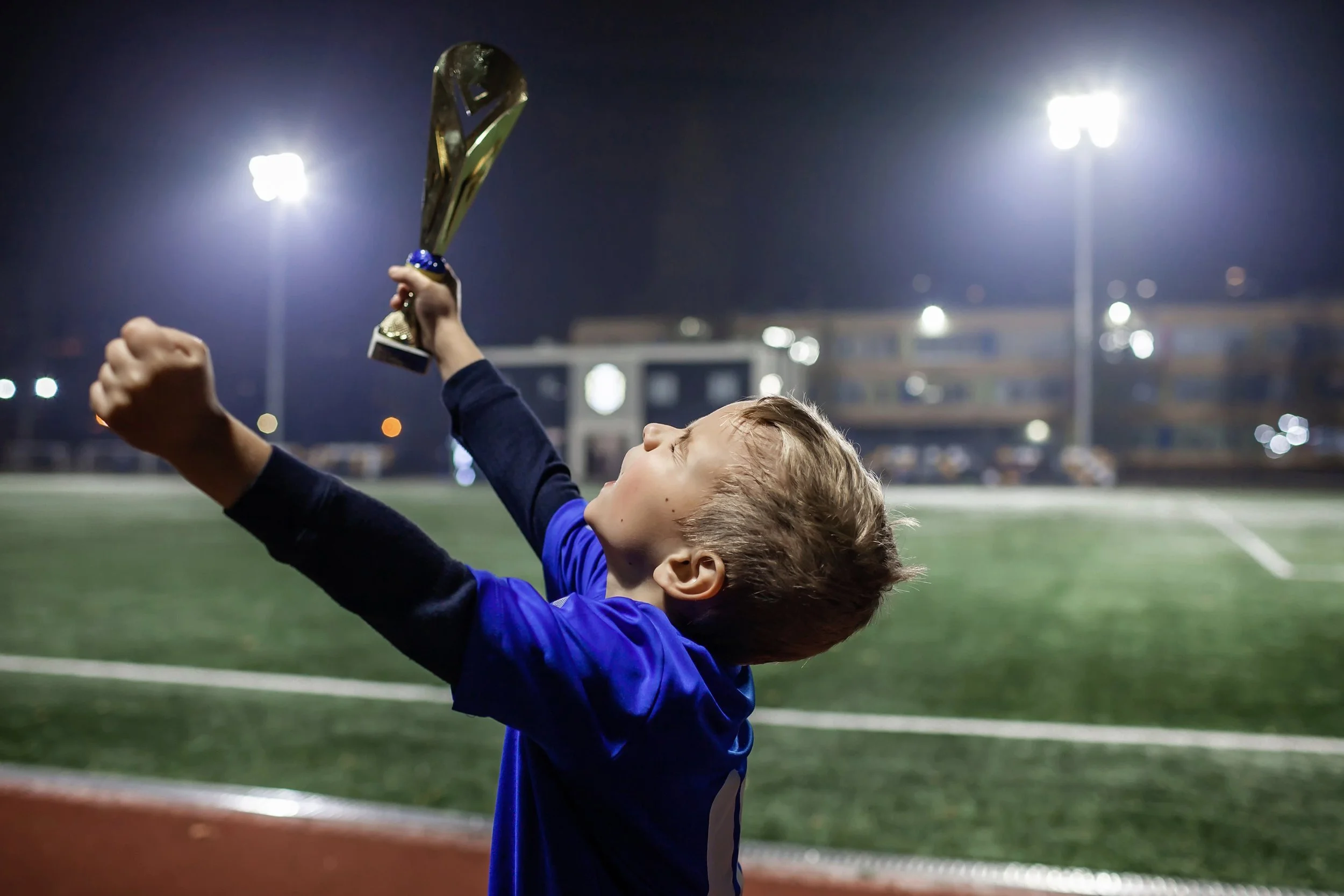The Enduring Legacy of Grandparents: A Reflection on Their Positive Influence
In the wake of the recent passing of three of my beloved grandparents, I find myself reflecting on the profound impact they had on shaping who I am today. As an adult, I realise that my relationship with my grandparents was more than just moments of joy and shared activities; it was a significant influence that sculpted my values, ideals, and approach to life. In this blog, I want to delve into the personal reflection of my experiences while exploring the existing research that supports the positive influence of grandparents on a child's development.
The Crucial Role of Protecting Children from Recurrent Pain: A Blueprint for Long-Term Well-being
Exploring the often-overlooked facet of childhood development, we delve into the lasting effects of recurring pain on a child's well-being. Research underscores the profound impact that enduring pain during formative years can have on cortical networks, pain sensitivities, and thresholds. This raises vital questions about the messages we convey as adults when children confront discomfort.
In the pursuit of nurturing a lifetime of physical activity, it becomes paramount for adults to acknowledge the importance of shielding children from recurring pain. The lessons we impart during their formative years extend beyond physical health, influencing their approach to sports and activities. By emphasizing the significance of tuning into their bodies, ensuring ample rest, and addressing injuries promptly, we lay the groundwork for a lifetime characterized by enjoyable, pain-free physical activity and overall well-being.
The Vital Role of Paediatric Physiotherapists in Children's Musculoskeletal Rehabilitation
When it comes to paediatric physiotherapy, understanding the unique needs, growth patterns, and psychology of children is paramount. Children are not just small adults; they have distinct musculoskeletal development, cognitive abilities, and a fundamentally different perspective on their bodies and activities. In this blog, we will explore the importance of a paediatric physiotherapist's understanding of specific musculoskeletal injuries, conditions, and symptom presentations in children. We will highlight how this understanding is crucial for ensuring children feel comfortable, empowered, and able to thrive in their activities.
The Power of Peer Learning: How Children Learn from Each Other
Children are remarkable learners, and their ability to absorb knowledge from their surroundings is truly awe-inspiring. While parents and caregivers play a fundamental role in a child's development, the relationships children forge with their peers are equally significant. This blog explores the role of peer learning in a child's development, drawing from the principles of social cognitive theory and sociocultural developmental theory.
Nurturing Imagination: The Importance of Unstructured Play for Children
In today's fast-paced, tech-driven world, children's lives are often filled with structured activities, screen time, and a hectic schedule. While these engagements are undoubtedly valuable in their own right, there is an equally important aspect of a child's development that we must not overlook: unstructured play and imaginative exploration. This essential component of childhood not only fosters creativity but also offers a plethora of developmental opportunities. In this blog, we'll delve into the significance of children having time to explore and engage in imaginative play, especially during moments of boredom.
"Empowering Our Little Stars: The Child-Centric Approach to Healthcare"
In the world of healthcare, every interaction is a unique story waiting to be told, and it's crucial to remember that the real star of this show is the child. Young patients often find themselves in unfamiliar, sometimes scary, situations, and it's our responsibility to ensure that they feel comfortable, heard, and empowered during their healthcare journey. By acknowledging the child as the protagonist in their healthcare narrative, we can provide better care and create more positive experiences for both children and their caregivers. Here are some top tips on how to make children the center of their healthcare journey.
Navigating the Impacts of Sever's Disease on Young Athletes
Sever's disease, a condition that primarily affects young athletes, can have profound physical, psychological, and social impacts. It arises from the inflammation of the growth plate in the heel bone due to overuse, and it's more common than you might think. In this blog, we will explore the multifaceted effects of Sever's disease on young athletes, the importance of timely assessment and rehabilitation by a paediatric physiotherapist, and the unique challenges associated with sports, growth, and recovery in pre-adolescent individuals.
Trampolines for Children: Bouncing with Fun and Safety
Trampolines have long been a staple of outdoor play and exercise for children. They offer a delightful way for kids to expend energy, develop physical skills, and have a blast while doing so. However, it's important for parents to be aware of both the benefits and potential dangers associated with trampolines, especially when considering them as holiday gifts for Christmas. In this blog, we'll explore trampolines, including fun, strength, balance, power, and play, as well as the risks, such as toddler or buckle fractures, and how to ensure a safe and joyful trampoline experience for your children during the holiday season.
Enhancing Youth Athlete Performance: The Power of Neurocognitive Rehabilitation in Musculoskeletal Recovery
Youth athletes are the embodiment of potential, energy, and passion. As they engage in various sports and physical activities, their bodies grow and develop, often facing the challenges of injuries along the way. Traditionally, the focus of rehabilitation for these injuries has been on the physical aspect, specifically the musculoskeletal system. However, a new and innovative approach is emerging that recognizes the crucial connection between the brain and movement patterns, imagery, and focus. Neurocognitive rehabilitation, when incorporated alongside musculoskeletal rehabilitation, can significantly impact the recovery process, and elevate the performance of youth athletes.
Understanding Growing Pains: Myths, Facts, and When to Seek Medical Assistance
As parents, we want the best for our children, and when they experience discomfort, it can be concerning. One common complaint among growing children is "growing pains." But what are growing pains, and how do we distinguish them from other medical issues? In this blog, we will explore the concept of growing pains, debunk some myths, discuss when medical assistance is necessary, and shed light on whether growing pains are real.
The Importance of Challenging Kids: Building Strength, Confidence, and Identity
Have you ever watched kids at a playground? They often do more than just swing on swings and slide down slides. They love to walk up the slide backward, hang upside down, and jump from ledges. Challenge themself. It might seem like mischief, but it's a vital part of their development.
Just like these playful challenges on the playground, safely challenging kids is crucial. It's a bit like allowing them to explore the world of life, much like navigating a playground with its own set of rules.
Is W-sitting worth the concern?
W-sitting is a sitting position commonly observed in children. It is called "W-sitting" because when viewed from above, the child's legs and body form a "W" shape. In this position, the child sits on their bottom with their knees bent and their feet positioned outside of their hips, causing their legs to be rotated outward. But is this positioning a concern?
The Barefoot Kiwi Kid: Encouraging Active Exploration for Child Development.
In Aotearoa New Zealand, we regularly see our children encouraged to embrace the freedom of running, exploring, and being active, often without shoes. But is this approach beneficial for their development? This blog dives into the recent research to answer this question.
"Growing Pains”: Understanding and Treating Apophysitis in Adolescents
Apophyseal injuries are often disregarded in children and adolescent, as it is a growth-related condition that does show improvements following closure of growth plates and completion of growth. However, it is important to question what is the child or adolescent missing out on in this period? Are they enjoying their sports or are they in pain? Are they moving freely and as efficiently as they can? Therefore, what is the influence on this individual in the short-term, and long-term.
Striking the Right Balance: The Crucial Role of Physical Activity Levels and Recovery for Children and Adolescents with Joint Pain
Physical activity is essential for the healthy growth and development of children and adolescents. It promotes cardiovascular fitness, builds strength, improves coordination, and supports overall well-being. However, it is equally important to understand the significance of balancing physical activity levels and recovery, especially for young individuals experiencing joint pain following exercise. In this blog post, we will delve into the pressures associated with apophysitis conditions during growth periods, explore the dangers of early sports specialization, and emphasize the significance of balancing multiple movement patterns and developmental learning.
















